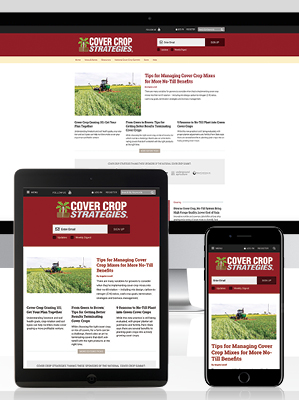Items Tagged with 'cereal rye'
ARTICLES
Soybeans and Cover Crops Can Work Together for Better Soil Health, Yields
Cereal rye biomass helped curtail weeds and reduce soil temperature
Read More
Cover Crops
When Is the Best Time to Terminate Cereal Rye to Suppress Weeds & Protect No-Till Soybean Yield?
1st year of research shows that between 7-14 days after soybean emergence, rye increases weed suppression by 5.3% per day but hurts yield by about ½ bushel per day
Read More






